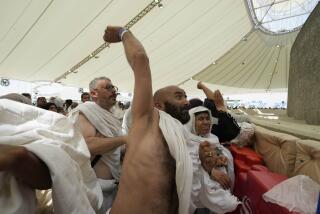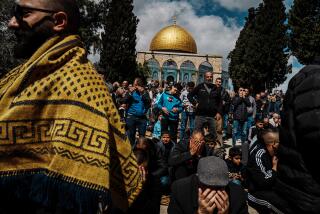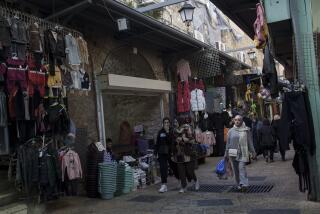Private prayers and empty funerals: The pandemic is hard on the Middle East faithful
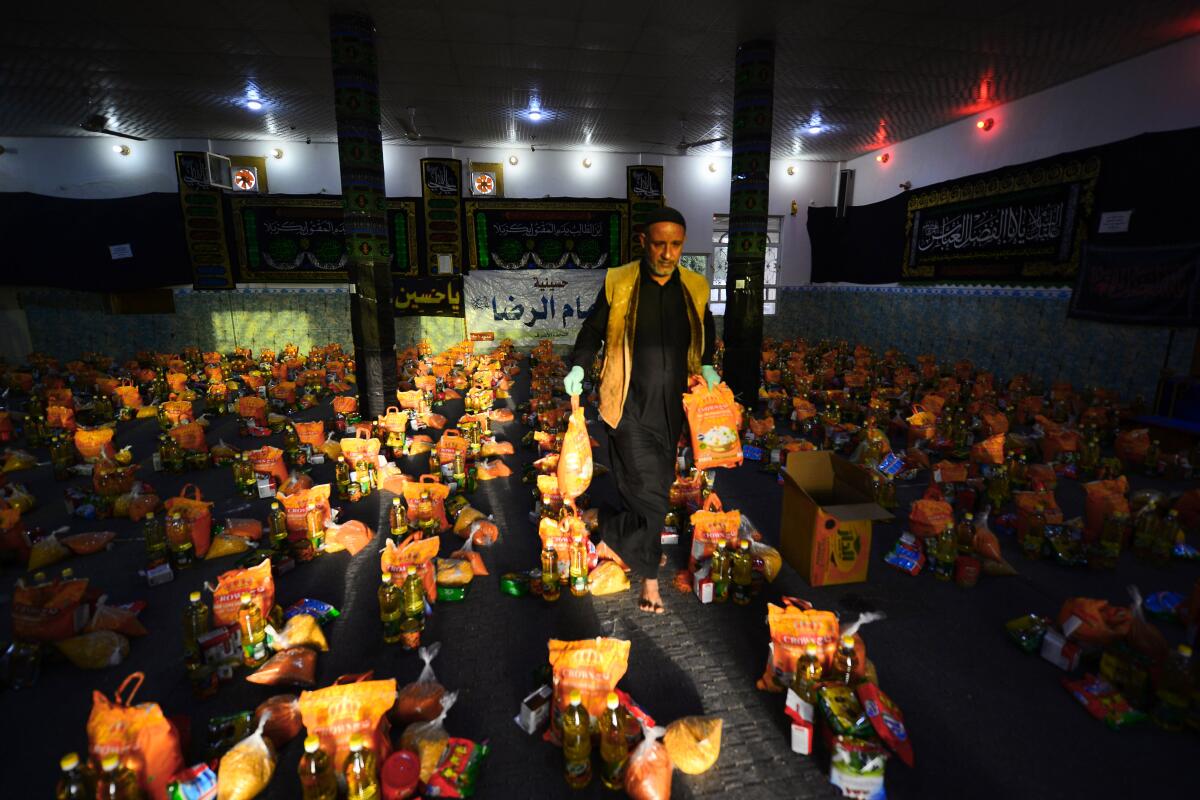
Beirut — Paying no attention to the tenets of social distancing, the abaya-shrouded women — no masks or gloves among them — crowded into the Baghdad square surrounding the shrine to Imam Musa Kadhim.
“I invite China, Italy and Iran,” one of the women said to a journalist from a satellite news station. “Those are the three biggest countries to be harmed. … I invite them all to come to the Imam.”
“We’ll run tests on them in this very square,” she said. “If they’re not all 100% free of [the novel coronavirus], they can slaughter all of us.”
The woman’s devotion was unwavering. But in a time of pandemic, religion, the sanctuary for so many in Iraq and elsewhere in the Middle East, has been hit hard. Its houses of faith — mosques, churches, temples and shrines — have become a front line in the battle by governments to smother the spread of a deadly global virus. So have its rituals, which draw believers to pilgrimages or massive gatherings of communal worship.
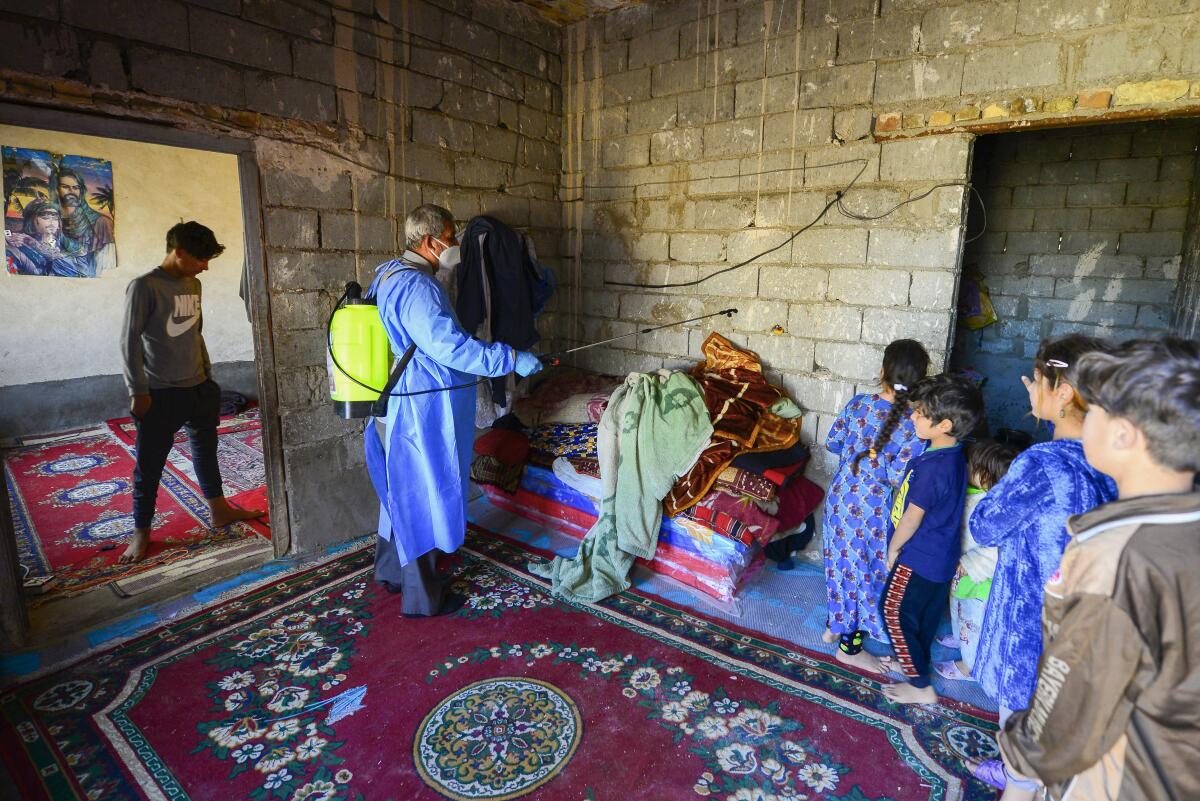
All are now forbidden.
Much of the religious leadership across the region has acquiesced to the requirements of self-isolation. But others, such as the women at the Kadhim shrine — followers of the Iraqi populist Shiite cleric Muqtada Sadr — insist their faith has made them impervious to the disease and may indeed offer the key to its cure.
For those adhering to public health guidelines, it has meant a ravaging of the religious calendar.
Arguably the biggest loss for the Muslims in the region (along with 1.9 billion Muslims worldwide) came early in the crisis: In the first week of March, Saudi Arabia suspended the Umrah, the so-called little pilgrimage, to Mecca and Medina, disrupting the travel plans of millions.
For the first time in recent history, the Kaaba, the black cube-like structure that is Islam’s most important site, was devoid of its pilgrims. Worse, the outbreak now imperils the Hajj, the main pilgrimage that every Muslim must do once in their lifetime and that was set for July. Last year, some 2.5 million people participated. (More than 600,000 have already registered for visas this year.)
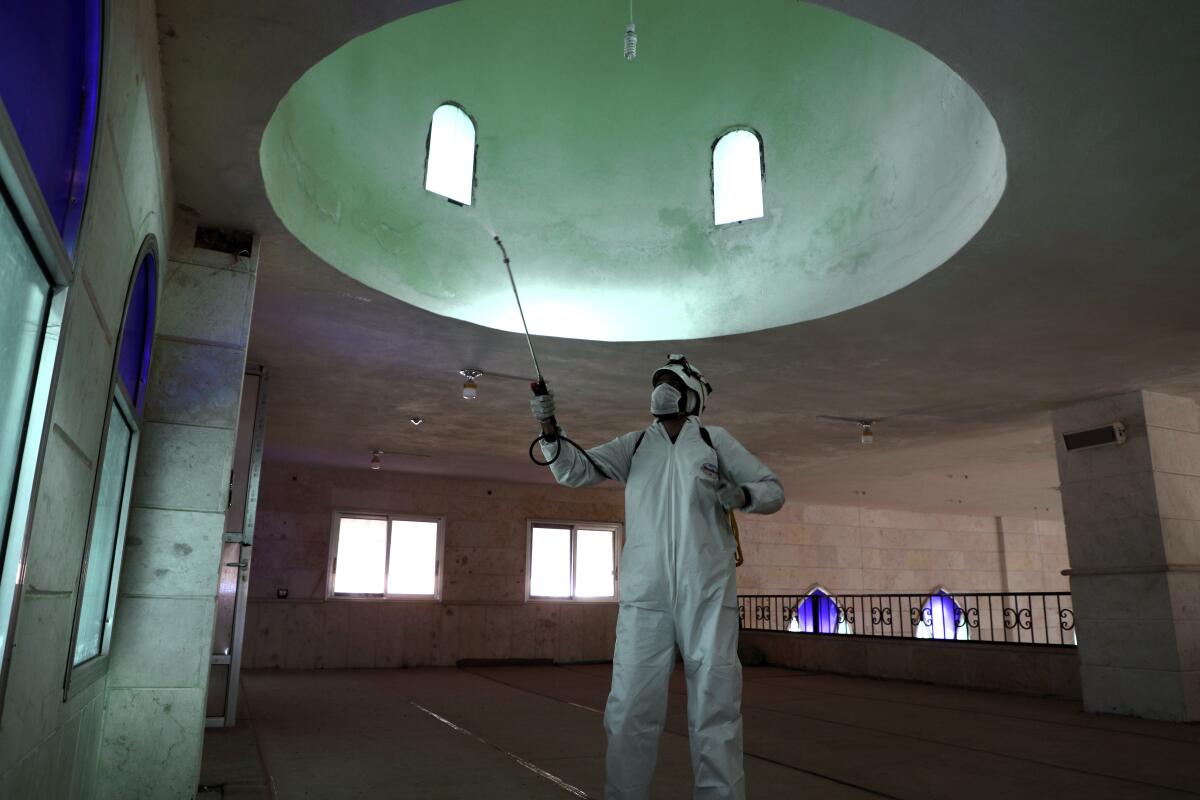
That wasn’t all. As March progressed and the number of infected kept climbing, Saudi Arabia extended the suspension to all prayers in mosques. Other Gulf countries, including the United Arab Emirates, Qatar and Bahrain followed suit.
So too did religious authorities in Egypt, whose 77 million Muslims had until Saturday continued to gather for prayer. There, the coronavirus outbreak had even changed the athan, the call to prayer, a fixed presence in the soundtrack of daily life across the region. It now exhorts believers to “pray at home.”
Even Al Israa wal Miraj in Beirut, which commemorates the prophet Muhammad’s night journey and ascension with celebrations in mosques, passed with no fanfare. “We just had an evening athan for it, and that was it,” said the caretaker of the mosque in the Zokak al Balat neighborhood.
Christians, who are in the midst of Lent and preparing for Easter, have been affected too. Joining its Muslim counterparts, Egypt’s Coptic Orthodox Church said over the weekend that it would close churches and suspend Mass “until further notice.”
“This is an important time for us, and no doubt the restrictions affect our faith. Imagine the church’s doors are closed, its courtyards empty,” said Father Augustin Helou, spokesman for the Maronite archdiocese of Beirut. “It makes you sad.”
“But the church didn’t hesitate at all to take this decision because in the end what is its concern? A person’s welfare.”
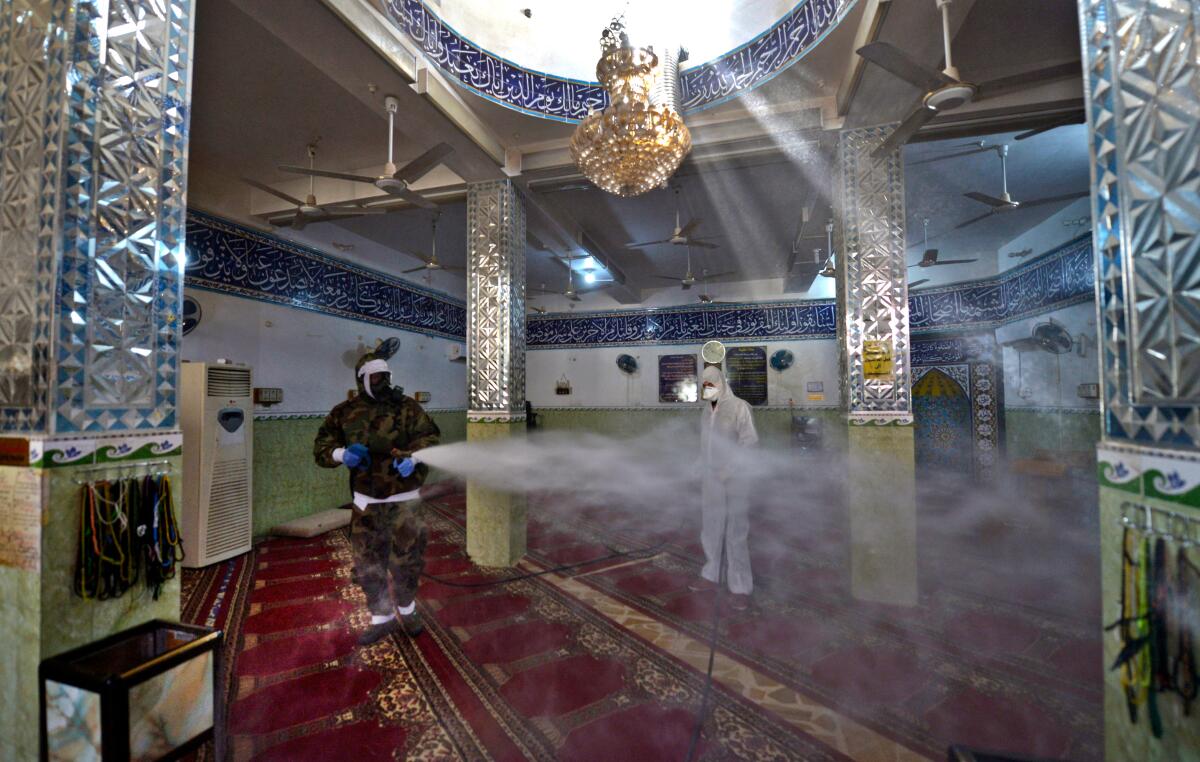
It was a disappointment for Lorre Hakim, a housewife in Geitawi, a neighborhood on Beirut’s eastern flank, which has a multitude of churches.
“Normally we would have events every day now,” she said. “This season it’s every person praying on their own ... direct with God.”
But the church and its faithful have adapted. Priests are now employing what Helou called “spiritual communion” in lieu of parishioners coming in person. Churchgoers can livestream sermons or access them later on social media pages or special satellite broadcast channels. Later that evening, he said, he would join teens in the church’s youth group in a Bible study session on Zoom and Microsoft Team, two popular video-teleconferencing apps.
“We’re doing this to make people realize the church hasn’t closed,” he said, “but this is not a time for personal contact.”
Just as COVID-19 has disrupted religious celebrations, neither has it spared rituals of mourning. Funerals are multi-day events here, with the family of the deceased expected to receive — shake hands, or kiss on both cheeks — those who come to pay respects. People often linger over coffee, or even join the family for a meal.
Much of that no longer applies. Those who do come stay only a few minutes and keep their distance. The church in Egypt even banned that, shutting down funeral halls in churches and restricting services only to the deceased’s family. Washing the corpse before burial, normally a requirement in Islam, can also be skipped if there is fear of an infection, declared Dar al Iftaa, Egypt’s governmental institute for Islamic legal research.
“My uncle’s body wasn’t placed in the church so mourners could say their goodbye. Instead he remained on his deathbed for 15 hours until he was taken straight to the church’s graveyard,” said Myrna Racheed, a freelance journalist in the Syrian capital, Damascus. Her uncle died Monday after a two-year illness.
Even the priest’s sermon, she added, had warnings for the few mourners present to take precautions, as well as a prayer for God to remove the coronavirus threat from the world.
But what of the living? For them, many religious leaders have wielded their authority to make sure they stay home.
Grand Ayatollah Ali Sistani in Iraq this week said it was obligatory upon Muslims to avoid physical contact; those who suspect themselves to be infected or are exhibiting symptoms should not mix with people. If they do and infect someone else who subsequently dies, they would have to offer up “blood money.”
One voice of dissent came from Shiite cleric Sadr. He criticized earlier this month the closure of religious shrines, and he’s urged his adherents to join the commemoration ceremony on Saturday for Imam Kadhim, a revered figure who died while in prison in 799. (The anniversary of his death brings tens of thousands to the northern Baghdad neighborhood that bears his name.)
He also insisted on daily visits to the shrine in the Iraqi city of Najaf, Shiite Islam’s spiritual capital, so as to force authorities to keep it open. Provincial authorities have blocked outsiders from entering the city. Meanwhile, Sadr City, the rundown Baghdad suburb that is the cleric’s bastion, was sequestered behind concrete barriers.
Some suggest the crisis is a form divine retribution for evil acts. That includes the Islamic State. In the recent issue of a its weekly newsletter, the Sunni extremist group described the coronavirus as “Allah’s painful torture.”
Hadi Modaressi, a prominent Iraqi Shiite cleric, said the virus, which first emerged in China, was Allah’s punishment for the country’s treatment of its Muslims, and because its people eat insects. “Whoever said the bad morals of people have no connection to their bodies is wrong,” he said in a video posted to social media in late February.
“Allah’s command in spreading this virus is clear.”
A week later, after a visit to the Iranian city of Qom, he was infected with the coronavirus. He is said to be recovering.
More to Read
Sign up for Essential California
The most important California stories and recommendations in your inbox every morning.
You may occasionally receive promotional content from the Los Angeles Times.
